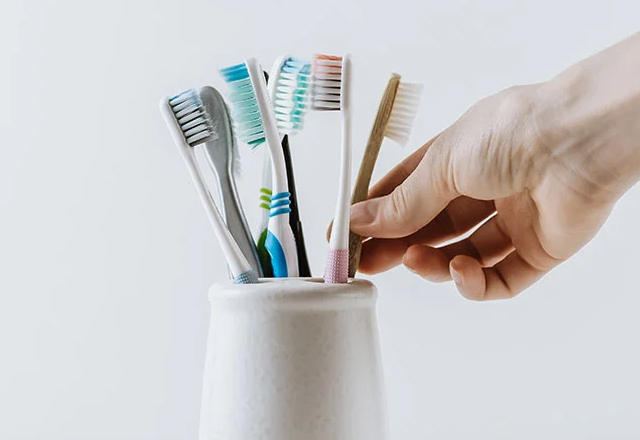
When it comes to maintaining good oral hygiene, brushing and flossing are often the go-to methods for most people.
While these habits are essential, they are not enough to keep your teeth and gums healthy in the long run. Professional dental cleanings are just as important, if not more so. Routine checkups with your dentist should never be overlooked, as they are crucial in preventing serious dental problems down the line. In this article, we will discuss the importance of professional dental cleanings and why they should be an essential part of your oral health routine. From preventing tooth decay to identifying early signs of gum disease, we will highlight the many benefits of getting your teeth cleaned by a professional on a regular basis. So, if you're someone who values a healthy and beautiful smile, keep reading to find out why routine dental checkups are a must!
Why Routine Dental Cleanings Are Important
Dental cleanings are one of the most effective ways to prevent tooth decay and gum disease. Even if you brush and floss regularly, there are still areas in your mouth that are difficult to reach, and over time, plaque and bacteria can build up in these areas, leading to dental problems. Regular cleanings help to remove this buildup, keeping your teeth and gums healthy and preventing the need for more extensive dental treatments down the line.
In addition to preventing dental problems, routine cleanings can also help to identify early signs of oral cancer. During your cleaning, your dentist will examine your mouth for any unusual growths or lesions, which can be an indicator of oral cancer. Early detection is key when it comes to treating oral cancer, so regular checkups are important for catching any potential issues as soon as possible.
Finally, routine dental cleanings can also help to keep your breath fresh and your smile looking great. Cleanings remove surface stains from your teeth, helping to restore their natural shine and whiteness. Additionally, your dentist will be able to identify any cosmetic issues with your teeth, such as chips or cracks, and recommend treatment options to improve the appearance of your smile
Benefits of Regular Dental Cleanings
There are countless benefits to getting regular dental cleanings, from preventing dental problems to improving your overall oral health. One of the biggest benefits of cleanings is that they help to remove plaque and tartar buildup from your teeth. Plaque is a sticky film of bacteria that forms on your teeth throughout the day, and if it's not removed, it can harden into tartar, which is much more difficult to remove. Regular cleanings help to remove both plaque and tartar, keeping your teeth and gums healthy and preventing decay and gum disease.
Another benefit of dental cleanings is that they give your dentist the opportunity to identify any potential dental problems early on. During your cleaning, your dentist will examine your teeth and gums for any signs of decay or gum disease, as well as check for any other issues that may be affecting your oral health. Catching these issues early on can help to prevent more serious problems down the line and save you time and money in the long run.
Finally, dental cleanings can also help to improve your overall health. Studies have shown that there is a link between gum disease and other systemic health conditions, such as heart disease and diabetes. By keeping your gums healthy through regular cleanings, you may be able to reduce your risk of developing these and other health conditions.
What Happens During a Dental Cleaning
During a dental cleaning, your dentist or dental hygienist will use a variety of tools to remove plaque and tartar buildup from your teeth. These tools may include a scaler, which is used to remove hard plaque from the surface of your teeth, as well as a polisher, which is used to buff and shine your teeth. Your dentist may also use a special tool to measure the depth of your gum pockets, which can be an indicator of gum disease.
Once your teeth have been cleaned, your dentist will floss between your teeth to remove any remaining debris and polish your teeth to remove surface stains. Finally, your dentist may apply a fluoride treatment to your teeth to help protect them against decay.
How Often Should You Get a Dental Cleaning
The frequency of dental cleanings will vary depending on your individual needs and oral health. Generally, most people should get a cleaning every six months, although some people may need to go more frequently if they have a history of dental problems or are at higher risk for developing gum disease.
If you're not sure how often you should be getting a cleaning, talk to your dentist. They can evaluate your oral health and recommend a cleaning schedule that's right for you.
What to Expect During a Dental Cleaning Appointment
If you've never had a dental cleaning before, you may be wondering what to expect. The process is generally very straightforward and takes about an hour to complete.
First, your dental hygienist will examine your teeth and gums to check for any potential issues. They will then use a scaler to remove any plaque or tartar buildup from your teeth, paying special attention to areas that are difficult to reach with a toothbrush or floss. Once your teeth have been cleaned, your hygienist will floss between your teeth to remove any remaining debris and polish your teeth to remove surface stains.
Finally, your hygienist may apply a fluoride treatment to your teeth to help protect them against decay. Your dentist will then examine your teeth and gums to ensure that everything looks healthy and make any recommendations for further treatment, if necessary.
Risks of Skipping Dental Cleanings
Skipping dental cleanings can have serious consequences for your oral health. Without regular cleanings, plaque and tartar can build up on your teeth, leading to tooth decay and gum disease. Additionally, skipping cleanings can make it more difficult for your dentist to identify potential dental problems early on, making them harder to treat and potentially leading to more serious issues down the line.
Finally, skipping cleanings can also have an impact on your overall health. As mentioned earlier, there is a link between gum disease and other systemic health conditions, so neglecting your oral health can have far-reaching consequences beyond just your teeth and gums.
Tips for Maintaining Good Oral Health Between Cleanings
While regular dental cleanings are important, there are also steps you can take to maintain good oral health between appointments. These include:
- Brushing twice a day with a fluoride toothpaste
- Flossing daily to remove debris from between your teeth
- Eating a healthy diet that's low in sugar and processed foods
- Avoiding tobacco products, which can cause gum disease and other health problems
- Using an antiseptic mouthwash to kill bacteria and freshen your breath
By incorporating these habits into your daily routine, you can help to keep your teeth and gums healthy and reduce your risk of developing dental problems.
Common Misconceptions About Dental Cleanings
There are several common misconceptions about dental cleanings that can prevent people from getting the care they need. One of the most common misconceptions is that cleanings are painful or uncomfortable. While you may feel some mild discomfort during the cleaning, it should not be painful, and your dental hygienist will take steps to ensure that you are as comfortable as possible throughout the process.
Another misconception is that dental cleanings are expensive or not covered by insurance. In reality, most dental insurance plans cover routine cleanings, and many dental offices offer financing options to make care more affordable.
Finally, some people believe that dental cleanings are unnecessary if they have good oral hygiene habits at home. While brushing and flossing are important, they are not enough to keep your teeth and gums healthy in the long run. Regular cleanings are essential for removing buildup and identifying potential dental problems early on.
Conclusion
In conclusion, routine dental cleanings are a crucial part of maintaining good oral health. From preventing tooth decay to identifying early signs of gum disease, there are countless benefits to getting your teeth cleaned by a professional on a regular basis. If you haven't had a dental cleaning in a while, make an appointment with your dentist today to ensure that your teeth and gums are as healthy as possible. By taking care of your oral health, you can enjoy a beautiful smile and reduce your risk of developing more serious dental and overall health problems down the line.



